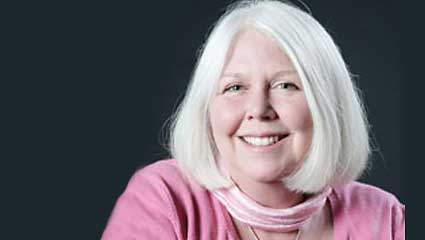Though shopping mall merchants might prefer an orgy of consumerism from Halloween to Christmas, we need November’s quiet pause for gratitude for all God gives so freely, especially through the natural systems of the living world.
Many cultures, including our own, mark the end of the year’s primary growing season with a harvest festival, during which the bounty of what environmental advocates have come to call “ecosystem services” is most apparent. Ecosystem services are the goods we take for granted, freely provided by the natural world. Duplicating these services would take trillions of dollars, if we could do it at all.
For instance, one-third of human food comes from plants that rely on bats, bees, flies, moths, beetles, birds, and butterflies to pollinate them, according to the Ecological Society of America. Of the top 150 prescription drugs used in the U.S., 118 originate from natural sources. Nine of the top ten drugs come from plants. The ecosystem also moderates weather extremes, disperses seeds, cycles and moves nutrients, purifies air and water, detoxifies and decomposes waste, controls pests, and provides aesthetic beauty.
It is appropriate to know our dependence with every breath of air, every step on hardwood floors, every morsel of food, or cup of water, or ray of heat and light. The lack of price tag on these ecosystem services should not fool us into believing they are worth less than commodities we can buy.
When laboring in the garden — or alternatively, in the office to earn grocery money — humans can fantasize that food acquisition is entirely our doing. But the skill to transform dry seeds into bountiful baskets of food is not ours. It belongs to the seeds themselves. Without the genetic genius embedded in those tiny husks long before humans walked the earth, nothing would grow at all. We cannot provide for ourselves the cornucopia of harvest that God gives through the ecosystem. Alongside our more accustomed thanks for freedom, health, prosperity, and love, we owe an overwhelming debt for life itself.
The four lectionary readings for Thanksgiving Day may be excellent resources in place of, or alongside of, some of the Sunday readings:
- Joel 2:21-27 address soil, pasture animals, and humans alike, calling for joy at God’s provision of rain and agricultural bounty.
- Psalm 126 contrasts “sowing in tears” with “reaping with joy.” The hard work and patience required for growing food becomes a metaphor for every aspect of life in which hopes are deferred to the future.
- 1 Timothy 2:1-7 calls for prayers for world rulers, in order that citizens may lead peaceable lives, calling to mind how much of our environmental future lies in the decisions of our governments. In the contemporary world, where we are no longer simply subjects but citizens, this passage also reminds us not only to pray for leaders but also to offer them our views and guidance.
- In Matthew 6:25-33 Jesus reminds his followers of God’s care for the birds of the air and the flowers of the field, in order to counsel a life free of needless fretting after wealth. This invitation to joyful simplicity, placed at Advent’s doorway, may transform our approach to Christmas.
Some but not all of the texts of the Sunday lectionary readily display environmental themes:
- Mark 12:28-34 (Nov 4), on the greatest two commandments, invites the opportunity to redraw the boundaries of “neighbor”: if, like the good Samaritan, the non-human neighbors around us give so freely, should our circle of concern not encompass them as well?
- Mark 12:38-44 (Nov 11) warns against self-important hypocrites who demand public respect, and extols instead the generous widow. This passage can call into question the practice of green-washing, strategic ecological concern trumpeted for PR purposes. Jesus here declares the meaningfulness of seemingly small, inconsequential gifts. What individuals do still matters.
- Mark 13:1-8 (Nov 18), Jesus’ apocalyptic speech, predicts the unthinkable that is soon to occur, the final destruction of the temple. A status quo, almost uninterrupted for a thousand years, will disappear in a day. Many arguments against the threat of climate change are based on the supposed invincibility of the ecosystem, despite all destructive human actions. Yet Jesus makes clear that nothing is invincible.
- The book of Ruth (1:1-18 on Nov 4; 3:1-5 and 4:13-17 on Nov 11) centers on infertility and fertility, pairing agricultural seed repeatedly with human seed. For notes on these, see the lectionary discussion of these two passages.
- In 2 Samuel 23:1-7 (Nov 25), King David compares wise rule to “the light of morning … the sun rising on a cloudless morning, gleaming from the rain on the grassy land” (verse 4), inviting reflection on the soul-enlarging and mind-clarifying natural landscape.
- Psalm 146 (Nov 4) reflects on the mortality of human leaders and the infinite gifts of God, “who made heaven and earth, the sea and all that is in them; who keeps faith forever; who executes justice for the oppressed, who gives food to the hungry” (verses 6-7), directing attention to the gifts of the natural world as God’s provision.
Patricia Tull’s monthly column suggests ways to bring God’s creation into your preaching, drawing on the coming month’s lectionary texts. Her hope is that creation in all its splendor — “the great community” — will be remembered in preaching and worship not just occasionally, but throughout the year.

